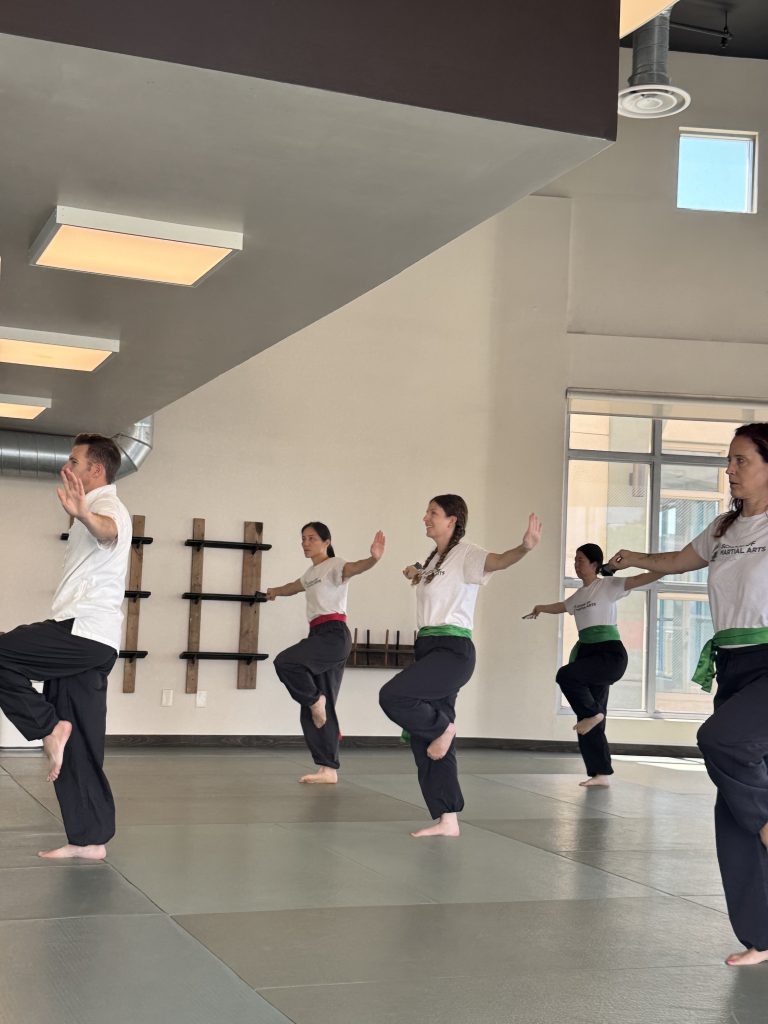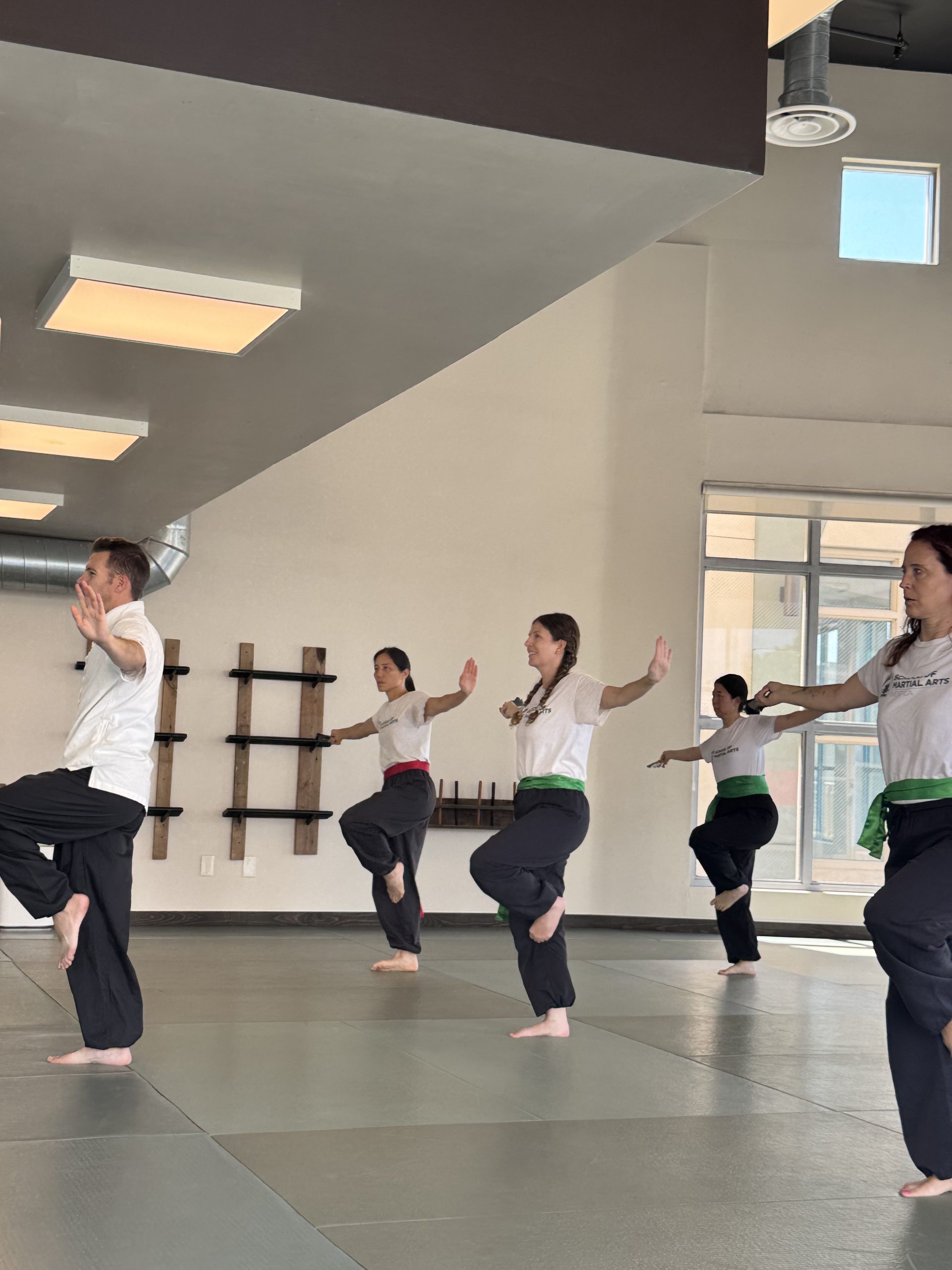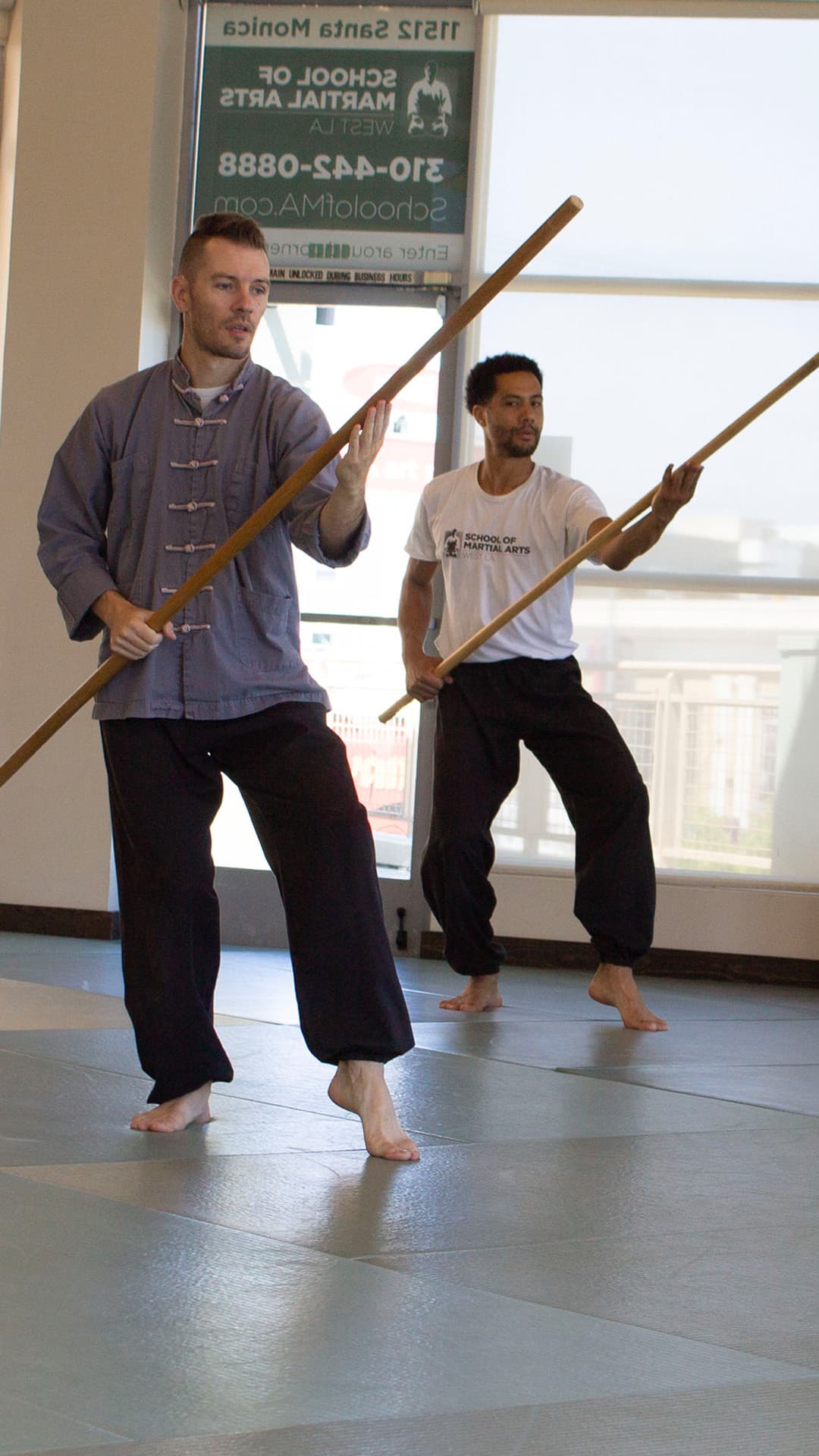
Sometimes, at the end of class when I ask for questions, nobody raises their hand. I take this opportunity to remind everyone of the importance of asking questions and say, “There is no such thing as a dumb question, only dumb people who don’t ask enough questions.” If you hear this, please take it personally. No, I’m not calling you dumb, but you should be asking questions! Ask me, ask other teachers, ask books, ask friends, ask yourself, ask!
Start with What Challenges You Most
I encourage everyone to start by remembering what the most difficult thing in this class was for you. Were you struggling to kick higher in Kung Fu, to remember a detail in Tai Chi, or to escape a submission in Brazilian Jiu Jitsu? Start with this. You may not know the best way to word your question. In that case, just raise your hand, say the name of the thing you find difficult, and look obviously confused. We can figure it out together.
This idea of starting with what gives us the most difficulty is profound. Instead of avoiding what is difficult for us, we should travel deep inside it.
Of course, in class there is a social component. We may be worried about looking dumb if we ask a question someone else already knows the answer to. This stops us all the time, a fear of looking dumb or feeling dumb.
When I was a kid in school I remember raising my hand in class, asking a question, getting laughed at by a few people and deciding I wouldn’t raise my hand anymore. I really loved learning and asking questions, but that fear of negative social reprisal kept my hand on my desk most days for years.
It took me quite a while to realize that what I got or avoided by not raising my hand, not asking questions, wasn’t worth everything I was missing.
Asking Even When No One’s Watching
Some of us (maybe all of us) sometimes avoid asking questions even when there is nobody there to laugh at us. We may fear the realization that we don’t know everything and feel less worthy.
Yet we should run towards that realization that we don’t know and enjoy the process of learning. Furthermore, we should ask the very questions that, were we to find the answers, might make us feel the most worthless.
We might ask why we have spent so much time doing things that leave us unhappy. We might ask what is beyond our ego mind. We might ask what awaits us after death.
Yet the answers to the most important questions, or even the journey to their answer, will shake us from our normal way of being. We will find there is a universe beyond what we perceive and place value in.
Sometimes it is difficult to find the right questions. We shouldn’t let this stop us from asking; on the contrary, the more we ask the better we get at it.
We should practice asking different, difficult questions every day. Journaling and meditation bring us in touch with our most hidden thoughts, revealing secret questions we may have avoided for a lifetime.
This search for the right questions should never end, for it is what pushes us forward and creates meaning for our lives.


